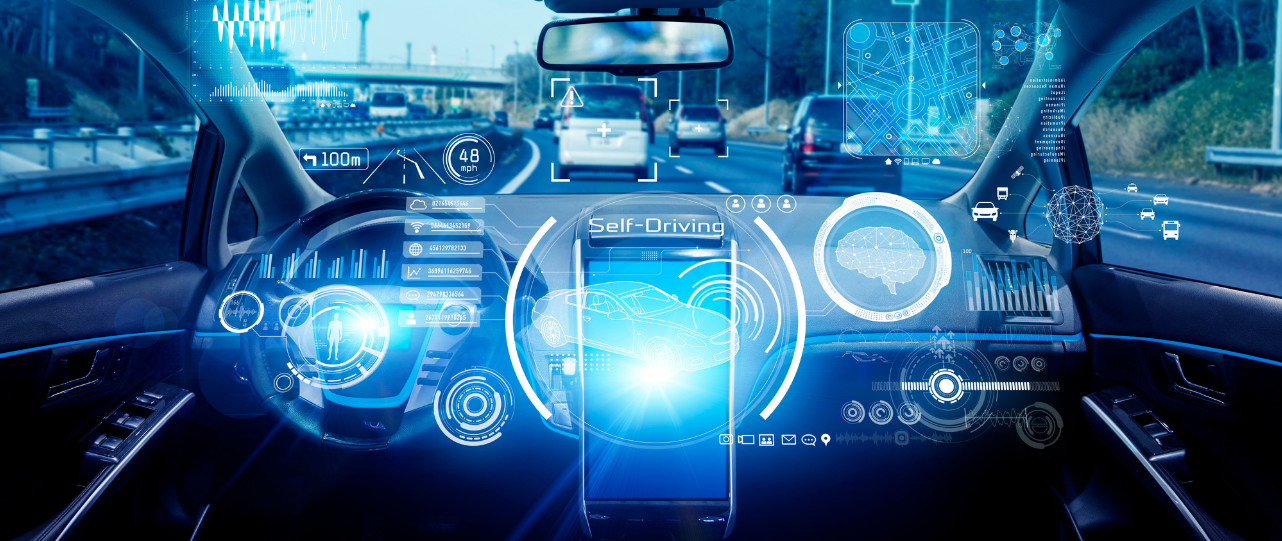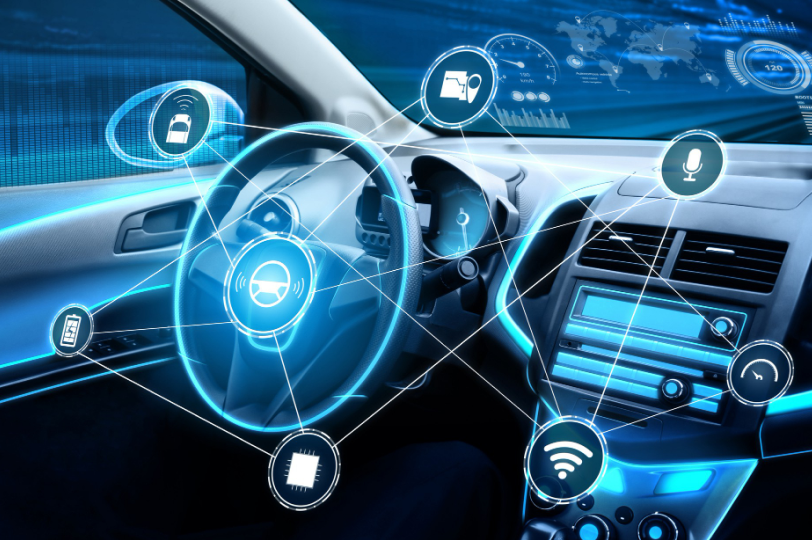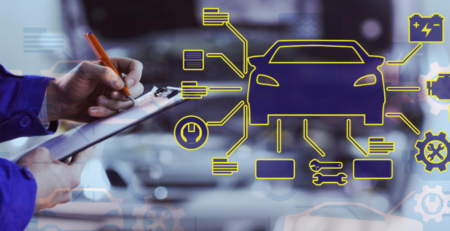In-Vehicle AI: Advancements in Modern Electric Vehicles and Customer Attraction
Dr. Paul Sathiyan – Technical Director, Automotive Power Electronic Drives, AIoT, MBSE
In the rapidly changing realm of automotive technology, In-vehicle Artificial Intelligence (I-VAI) has ascended as a revolutionary factor in the automotive industry, especially within the domain of Electric Vehicles (EVs). The I-VAI refers to the integration of Artificial Intelligence (AI) algorithms and systems directly onto the vehicle’s onboard computers. Incorporating advanced AI capabilities revolutionizes the driving experience, making them a distinguishing factor for EV manufacturers. As consumers increasingly prioritize connectivity and technological advancements in their vehicles, the presence of these features drives widespread adoption and influences the future trajectory of mobility.

The I-VAI functionalities:
- Contribute to a seamless and intelligent driving experience with enhanced safety, convenience and vehicle performance
- Enable vehicles to analyze data for real time decision making
- Interact with driver and passengers
- Elevating the appeal of EV in the eyes of consumers
The exceptional collaboration among technical experts, AI engineers, and data scientists at EinNel Technologies has led to the development of numerous I-VAI systems, utilizing both cloud and edge-based architectures. These systems guarantee both passenger safety and driving comfort adhering to regulatory standards and enjoy a high degree of user acceptance.
The implementation of Advanced Driver Assistance Systems (ADAS) based on I-VAI technology has greatly enhanced the driving experience. These systems utilize AI algorithms to process sensor data from cameras, radar, and lidar enabling functionalities like adaptive cruise control, lane-keeping assistance and autonomous emergency braking.
While ADAS alleviates the driving workload it remains crucial for the driver to be attentive. The Driver Monitoring Systems (DMS) based on I-VAI enhances safety throughout the journey by continuously monitoring and tracking the driver’s behavior. When the driver exhibits symptoms of drowsiness or drunkenness or physical or cognitive distractions, the passive vision-based AI DMS detects them and sends out haptic and audio-visual cues to alert the driver. Meanwhile the multi-modal AI systems are designed to eliminate phantom warning. In order to safely off-road the vehicle active safety systems have been built in.
Furthermore, AI-powered navigation systems have drastically changed the way we travel. Gone are the days of relying just on paper maps or basic GPS guidance. AI systems can now analyze traffic patterns, road conditions and historical data to provide more accurate and efficient route recommendations.
Further improving comfort and convenience for drivers are voice-activated virtual assistants, which allow them to handle several vehicle functions and access navigation hands-free. Advanced Natural Language Processing (NLP) allows passengers to interact with the system using voice commands making it easier to control entertainment options thus mitigating driver distraction.
AI-powered in-vehicle infotainment systems can personalize content based on individual preferences, including music, podcasts and audiobooks providing passengers with a more enjoyable travel experience.
The AI based in-vehicle climate control system enhances the travel comfort. AI algorithms analyze data from sensors and automatically adjust the temperature, airflow and seat settings based on passenger preferences and environmental conditions. This adaptive climate control not only enhances comfort but also improves energy efficiency by optimizing the use of heating and cooling systems.
Beyond all these intelligent systems, I-VAI also enhances safety and convenience through intelligent energy management. AI algorithms monitor various parameters such as battery state-of-charge, operating temperature, driving conditions and traffic patterns to optimize energy consumption and maximize range. This not only alleviates range anxiety but also ensures that drivers can make the most out of their electric vehicles without compromising convenience.
Furthermore I-VAI enables predictive maintenance, identifying potential issues before they escalate into major problems. By continuously monitoring vehicle performance data, AI algorithms can anticipate maintenance needs and alert drivers to take proactive measures, thereby reducing downtime and enhancing overall reliability.
As I-VAI continues to evolve, driven by advancements in machine learning, data analytics, and sensor technology its impact on modern EVs will only intensify. Future developments may include even more sophisticated autonomous driving capabilities, personalized user experiences, and seamless integration with smart infrastructure.










